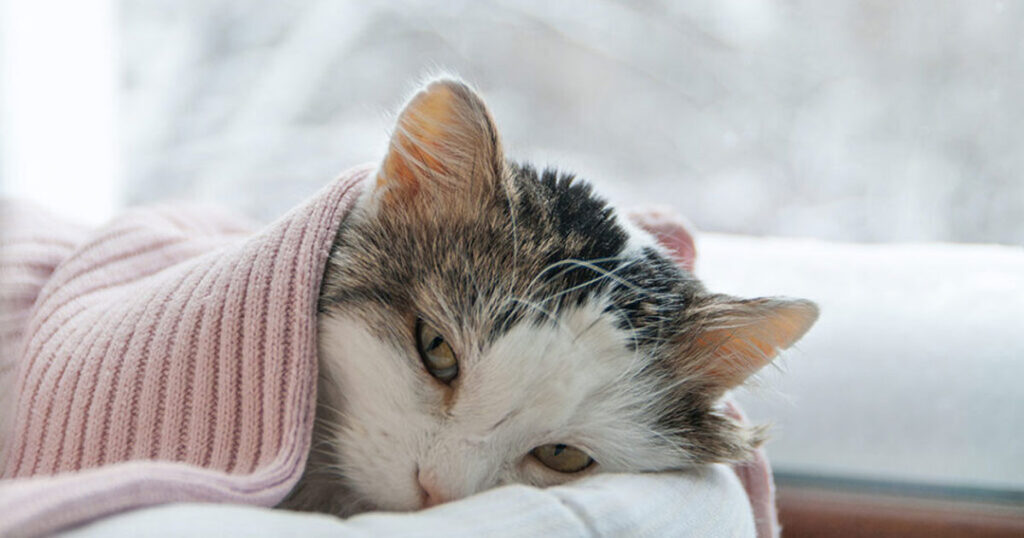No products in the cart.
Natural Pet Health
Respiratory illness in pets. Don’t just worry about winter.
BY: Tom Farrington MVB MRCVS VetMFHom. Chief Veterinary Medical Advisor for HomeoPet
Winter is the time of year when many people in the Northern Hemisphere start to worry about respiratory disease and the winter flu season. And with good reason.
Flu is more common in the winter because the virus lives longer indoors in winter, as the air is less humid than outside (the flu likes cold, dry weather). In winter we spend more time indoors and have closer contact with each other, which makes it easier for the virus to spread. And to add to the perfect storm of increased flu infections, days are shorter in winter, with a lack of sunlight leading to low levels of vitamin D and melatonin, compromising our immune systems and decreasing our ability to fight the virus.
But what about our pets?
Many people worry about their pets and respiratory disease in winter for the same reasons, but in fact most respiratory disease is an all year round problem.
For example, people with emphysema (chronic obstructive pulmonary disease or COPD) have difficulty breathing throughout the year, as do our pets that suffer from COPD. The same is true for asthmatic animals, in much same way that human asthmatics can have difficulty breathing at any time of the year.
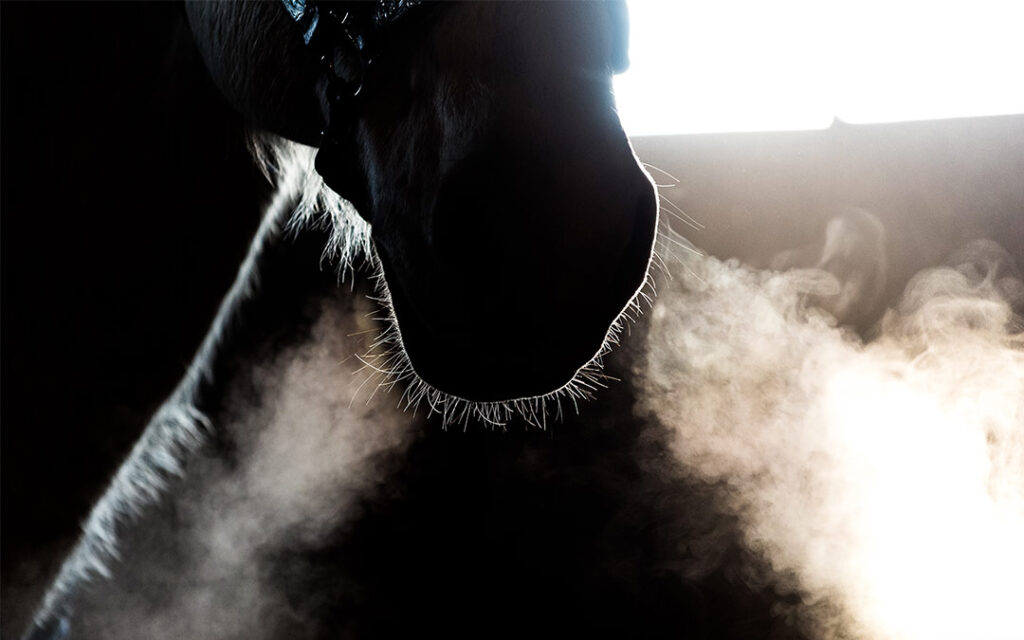
There are, of course, peaks and troughs throughout the year and although the season may vary depending upon where you live in the world, many of the causal factors are similar. I commonly see pets whose asthma and COPD gets worse as a result of seasonal external factors such as grass pollens in summer, or the animal being indoors more where a dusty environment stresses the respiratory system (which is a particular issue for horses). Damp, foggy weather can also be a trigger factor, as can smoke inhalation, which is unfortunately an increasingly common seasonal stressor in some parts of the world.
There are also respiratory diseases such as kennel cough or cat flu, which are often spread at this time of year as kennel and cattery boarding increases during holiday season. Modern vaccinations can and have made a big difference to the prevalence of these diseases, but there are often strains that are not covered by such vaccinations, much in the same way that the flu vaccine does not always cover every strain.
In a nutshell, respiratory illnesses can happen at any time of the year in our pets, but there are common causal factors which are often seasonally related.
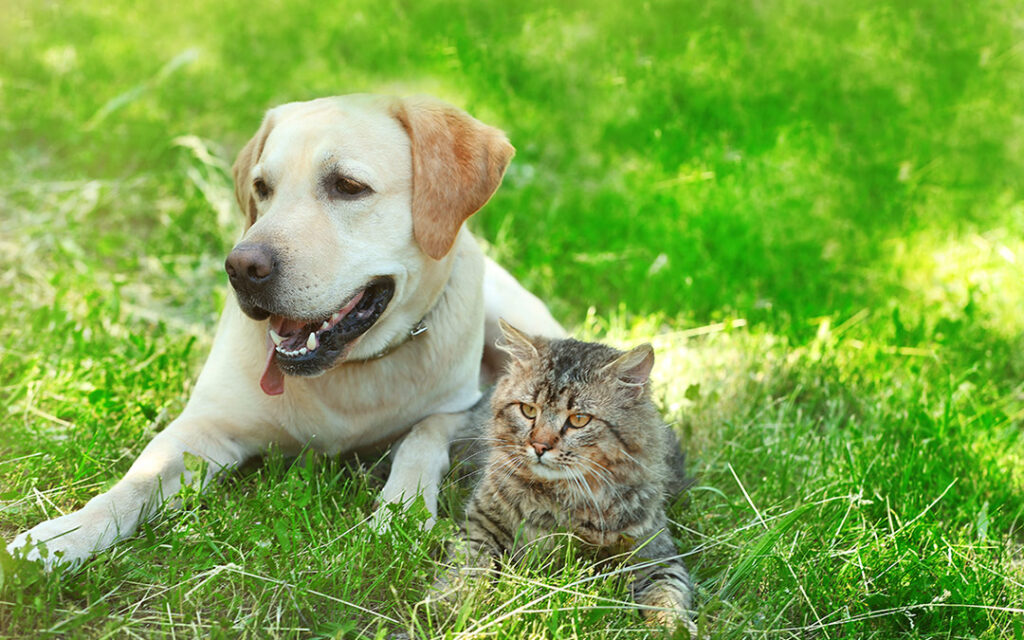
Chronic respiratory disease requiring veterinary attention
Three very important forms of respiratory disease that create chronic symptoms that do not go away and need veterinary investigation to diagnose are:
- Lung worm. Most species of animal have their own version of lung worm, from cats, dogs and birds through to horses and cattle. It is important to keep your animal on a regular de-worming protocol.
- Lung cancer or cancer affecting the respiratory system. I have even seen cancer in the throat, heart, ribs, liver and thymus, to mention a few cancers that can affect the lungs and which can produce almost all of the usual lung disease symptoms.
- I have seen cases of anaemia mimic or at least produce severe symptoms of respiratory disease such as dyspnea struggling for breath and panting. Such anaemia can have many causes, including worms, cancers, gut disorders and bleeding, both internal and external.
Symptoms of respiratory disease in pets
The symptoms of respiratory problems in pets can vary somewhat depending on the cause of the problem, but may include one or more of the following symptoms:
- Nasal discharge
- Eye discharge
- Fever
- Itchy nose
- Sneezing
- Coughing, snorting, and wheezing
- Gagging or retching
- Dry nose (in dogs)
- Drooling or foaming at the mouth
- Ulcers of the mouth or nose
- Loss of appetite
- Weight loss
- Dehydration
- Lethargy
- Exercise intolerance
- Expectoration – coughing up mucus even to extent of vomiting
- Panting – rapid breathing
- Cyanosis – blue purple discoloration due to lack of oxygen
- Pallor – Paleness due to anaemia or blood loss
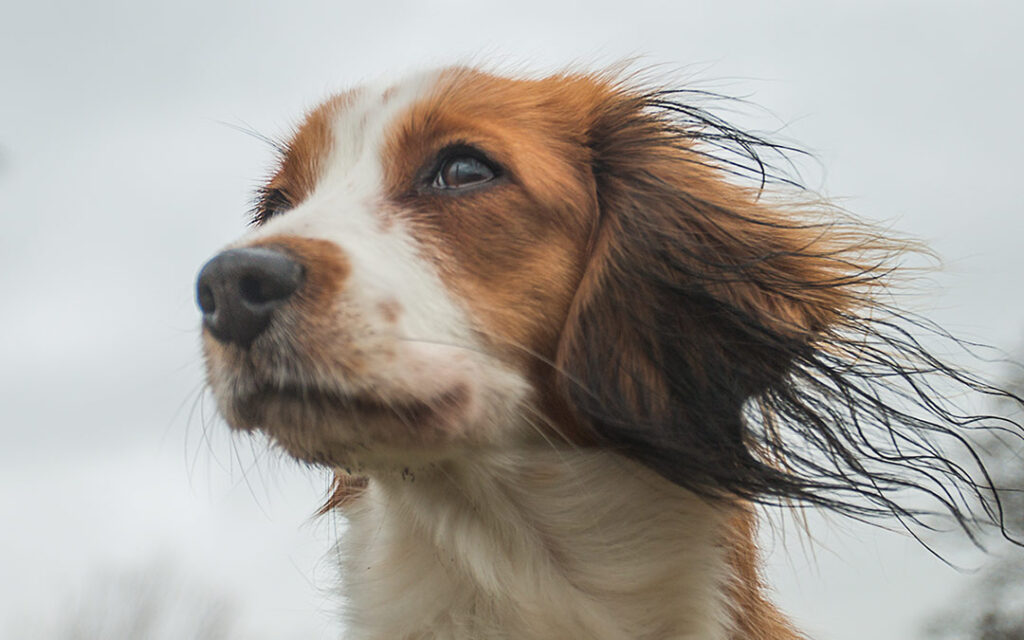
Causes of respiratory disease in pets
Respiratory disease can be caused by many different factors, with some of the most common causes that I see in my practice including:
- Viral or bacterial infections – such as Feline herpesvirus, kennel cough, or colds or flu.
- Asthma – where the airways become inflamed and spasm, which makes them narrower and can cause severe breathing difficulties.
- Pneumonia – an infection of the lungs that can be caused by contagious diseases or from breathing in food/liquid, usually after vomiting or regurgitation has occurred.
- Congestive heart failure – when the heart is not working properly. This is often complicated by a congested liver and kidneys with deficient circulation, meaning they cannot do their job properly as they are affected by the heart complaint, leading to the build-up of fluid in and around the lungs.
- Laryngeal paralysis or a collapsed trachea – where the throat does not function correctly, meaning that it does not open to allow enough air in, particularly during heavy breathing. An unfortunate and completely avoidable causal factor in a collapsed trachea is the use of collars rather than a body harness for exercise.
- Increased susceptibility to infection – these days there is widespread use of immunosuppressive drugs and treatments such as chemotherapy in our pets, which can add to the susceptibility for infection during the winter respiratory season, much like for humans.
Treating respiratory disease in pets
Consult your vet
Treatments are different for different respiratory conditions and it is essential to consult your vet if your animal is having difficulty breathing or is showing symptoms of respiratory disease. Antibiotics can be helpful in some cases, but they won’t help all conditions and it is important to have a correct diagnosis from your vet and an appropriate treatment program.
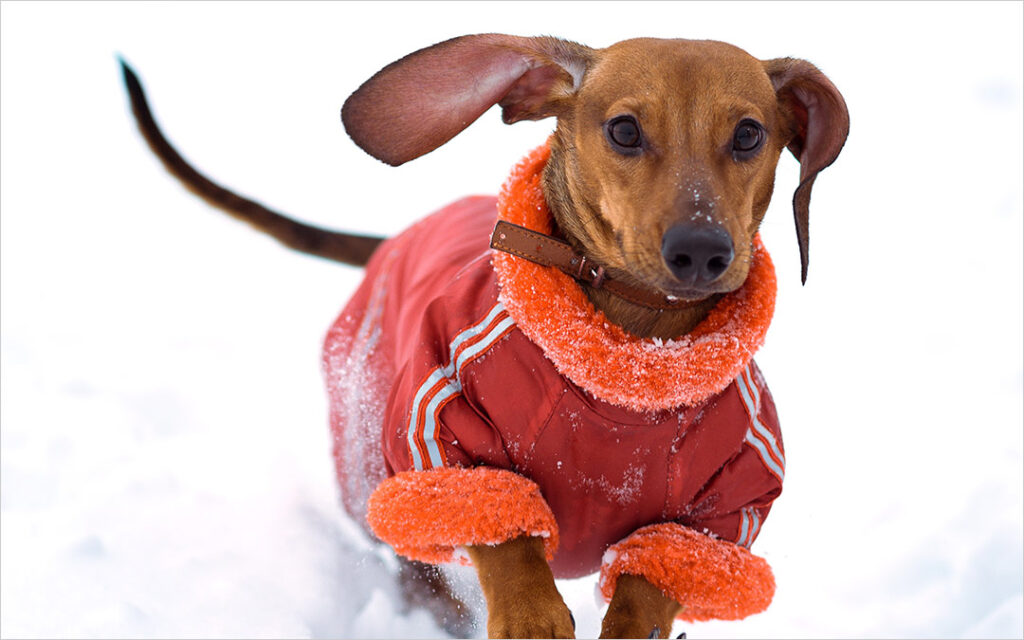
Keep them warm and dry
An important thing to particularly bear in mind at this time of year is to dry off pets that have got very wet rather than let them get cold, particularly for older animals. Like us humans, older pets are often more susceptible to respiratory disease, because their advancing age means they can’t cough up sufficient mucus. This could be for a variety of reasons, such as heart disease, kidney disease, liver disease, all of which in their own way can cause the accumulation of extra fluid in the lungs, creating the perfect breeding ground for bacteria or viruses.
Natural support
Within the HomeoPet range of natural medicines we have a number of products formulated to support a healthy respiratory tract in animals. Like all HomeoPet medicines, these products are veterinary formulated from natural ingredients and are easy to administer. They can also be combined with other HomeoPet products.
If you have any questions regarding your pet’s respiratory problems and whether Homeopet natural medicines may provide relief, please do get in touch – we’re here to help.
Please note, this article was authored by a licensed practicing veterinarian based on his experiences in his practice and does not constitute veterinary advice. Please consult your veterinarian should your pet be unwell and show any symptoms of respiratory illness.




